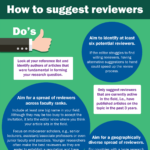The adverb ‘respectively’ is often used incorrectly by non-native English speakers. In this short post, we discuss the correct way to use ‘respectively’, focusing on its use in scientific manuscripts. ‘Respectively’ means ‘separately and in the order already mentioned‘. It is used when describing two or more items that refer back to a previous statement. […]
Declarative titles: Should you state a study’s main findings in the title?
There has been some controversy over the usage of declarative titles, i.e., titles that state the main findings of the study. e.g., Visible light reduces C. elegans longevity [1] Pros Defenders of such titles have argued that they are more informative than other title styles (for information on title styles, please refer to our blog […]
How to write an effective title
You should not underestimate the importance of an effective title. The title is the first thing an editor, reviewer, and reader will see; a title that is poorly constructed may deter viewers from reading further. Titles are also important for indexing purposes; a well-constructed title will make it easier for people searching for papers on […]
How to suggest reviewers
Journals often struggle to find willing reviewers, which can lengthen the publication process. To combat this, you may be requested to suggest reviewers at the submission stage. In the following infographic, we provide some tips on identifying suitable reviewers. The infographic contains the following text: Do’s Aim to identify at least six potential reviewers. […]
Discussing your study’s limitations
Why include a limitations section? Including a section on the limitations of your findings will demonstrate command over your research. A reviewer may look negatively upon your study if they spot a limitation that you failed to acknowledge. If you discuss each limitation in the context of future research—i.e., suggest ways to improve the validity […]





